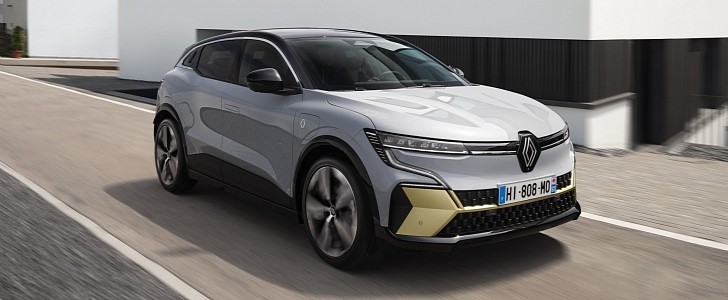Some days ago, we mentioned that the Nissan Ariya was supposed to introduce the CMF-EV platform to the world, but that production delays would probably give the Renault Mégane E-TECH that primacy. When the French electric SUV was about to cross the finish line, a production interruption at the Douai plant puzzled everything.
According to France Presse, the activities in the factory stopped on April 14 and will remain that way until April 25. Predictably, semiconductors are what the company needs the most. The production suspension may give Renault time to receive them. Unfortunately, the interruption is no guarantee that it will not happen again.
As the French automaker already managed to manufacture some units of the Mégane E-TECH, it confirmed that deliveries would indeed start in May, as it was scheduled. Now we have to keep an eye on Nissan to check when it will be able to handle the first units of the Ariya to its customers. Although it will have an international career, these first Ariyas should be delivered in the company’s home market, Japan.
The supply chain issues are causing a massive problem for the automotive industry and particularly for electric cars. Volkswagen can only deliver new ID family vehicles by 2023 due to shortages. On the other hand, companies that do not count that much on suppliers are surfing this crisis in much better shape.
The best example is BYD, which manufactures most of its own components, including semiconductors. Tesla also has a high rate of verticalization but is now facing production problems at Giga Shanghai, which closed because the Chinese government lost control of COVID-19 infections in that city.
Although the current situations seem to point to verticalization as the solution, there’s a good reason why automakers turned to suppliers: production gets more efficient when dedicated companies make the necessary components. The fact that BYD can apparently do that efficiently is a fantastic business case that other automakers should study carefully.
As the French automaker already managed to manufacture some units of the Mégane E-TECH, it confirmed that deliveries would indeed start in May, as it was scheduled. Now we have to keep an eye on Nissan to check when it will be able to handle the first units of the Ariya to its customers. Although it will have an international career, these first Ariyas should be delivered in the company’s home market, Japan.
The supply chain issues are causing a massive problem for the automotive industry and particularly for electric cars. Volkswagen can only deliver new ID family vehicles by 2023 due to shortages. On the other hand, companies that do not count that much on suppliers are surfing this crisis in much better shape.
The best example is BYD, which manufactures most of its own components, including semiconductors. Tesla also has a high rate of verticalization but is now facing production problems at Giga Shanghai, which closed because the Chinese government lost control of COVID-19 infections in that city.
Although the current situations seem to point to verticalization as the solution, there’s a good reason why automakers turned to suppliers: production gets more efficient when dedicated companies make the necessary components. The fact that BYD can apparently do that efficiently is a fantastic business case that other automakers should study carefully.
















